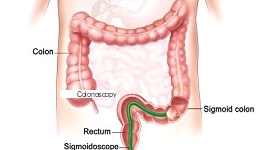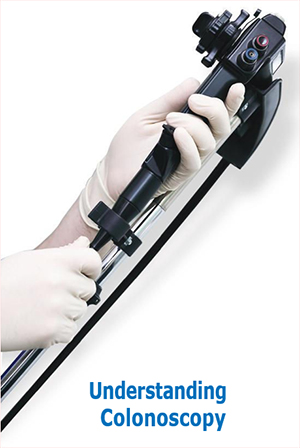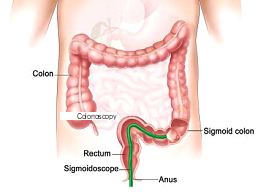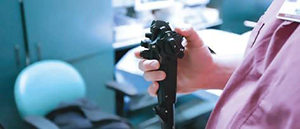Colonoscopy


What happens after a Colonoscopy?
You will be monitored until most of the effects of the sedatives have worn off. You might have some cramping or bloating because of the air induced into the colon during examination. This should disappear quickly when you pass gas. Your physician will explain the results of the examination to you, although you’ll probably have to wait for the results of any biopsies performed. After the procedure due to conscious sedation, you may not be able to drive home and it is best you have someone to pick you up or take a cab home. You may have to take a day off from work.
Important Reminder:
This preceding information is intended only to provide general information and not as a definitive basis or treatment in any particular case. It is very important that you consult your doctor about your specific condition.
What is Colonoscopy?
Colonoscopy lets your doctor examine the lining of your large intestine (colon) for abnormalities by inserting a thin flexible tube, as thick as your finger, into your anus and slowly advancing it into the rectum and colon. The instrument, called a colonoscope, has its own lens and light sources and it allows your doctor to view images on a video monitor.
What preparations are required?
Your doctor will tell you what dietary restrictions to follow and what cleansing routine to use. In general, the preparation consist of limiting your diet to clear liquids the day before and consuming either a large volume of a special cleansing solution or special oral laxatives. The colon must be completely clean for the procedure to be accurate and comprehensive, so be sure to follow your doctor’s instructions carefully.

Can I take my current medications?
Most medication can be continued as usual, but some medications can interfere with the preparation for the examination. Inform your doctor about medications you’re taking, particularly aspirin products, arthritis medications, anticoagulants (blood thinners such as warfarin or heparin), clopidogrel, insulin or iron products. Also be sure to mention allergies you have to medications.
What happens during Colonoscopy?
Colonoscopy is well tolerated and causes mild discomfort. You might feel pressure, bloating or cramping during the procedure. Typically, your doctor will give you intravenous injections which is conscious sedation, to help you relax and better tolerate the procedure. You will lie on your side or back while your doctor slowly advances a colonoscope along your large intestine to examine the lining. Your doctor will examine the lining again as he or she slowly withdraws the colonoscope. The procedure itself usually takes about 45 minutes, although you should plan on two to three hours for waiting, preparation and recovery.
What if the Colonoscopy shows something abnormal?
If your doctor thinks an area needs further evaluation, he or she might pass an instrument through the colonoscope to obtain a biopsy (a small sample of the colon lining) to be analyzed. Biopsies are used to identify many conditions, and your doctor will often take a biopsy. Your doctor might also find polyps during Colonoscopy, and depending upon the size can be biopsied and removed. These procedures don’t usually cause any pain.

What are polyps and why are they removed?
Polyps are abnormal growths in the colon lining that are usually benign (noncancerous). They vary in size from a tiny dot to several inches. Your doctor can’t always tell a benign polyp from a malignant (cancerous) polyp by its outer appearance, so he or she will usually remove polyps for analysis. Because cancer begins in polyps, removing them is an important means of prevention.



